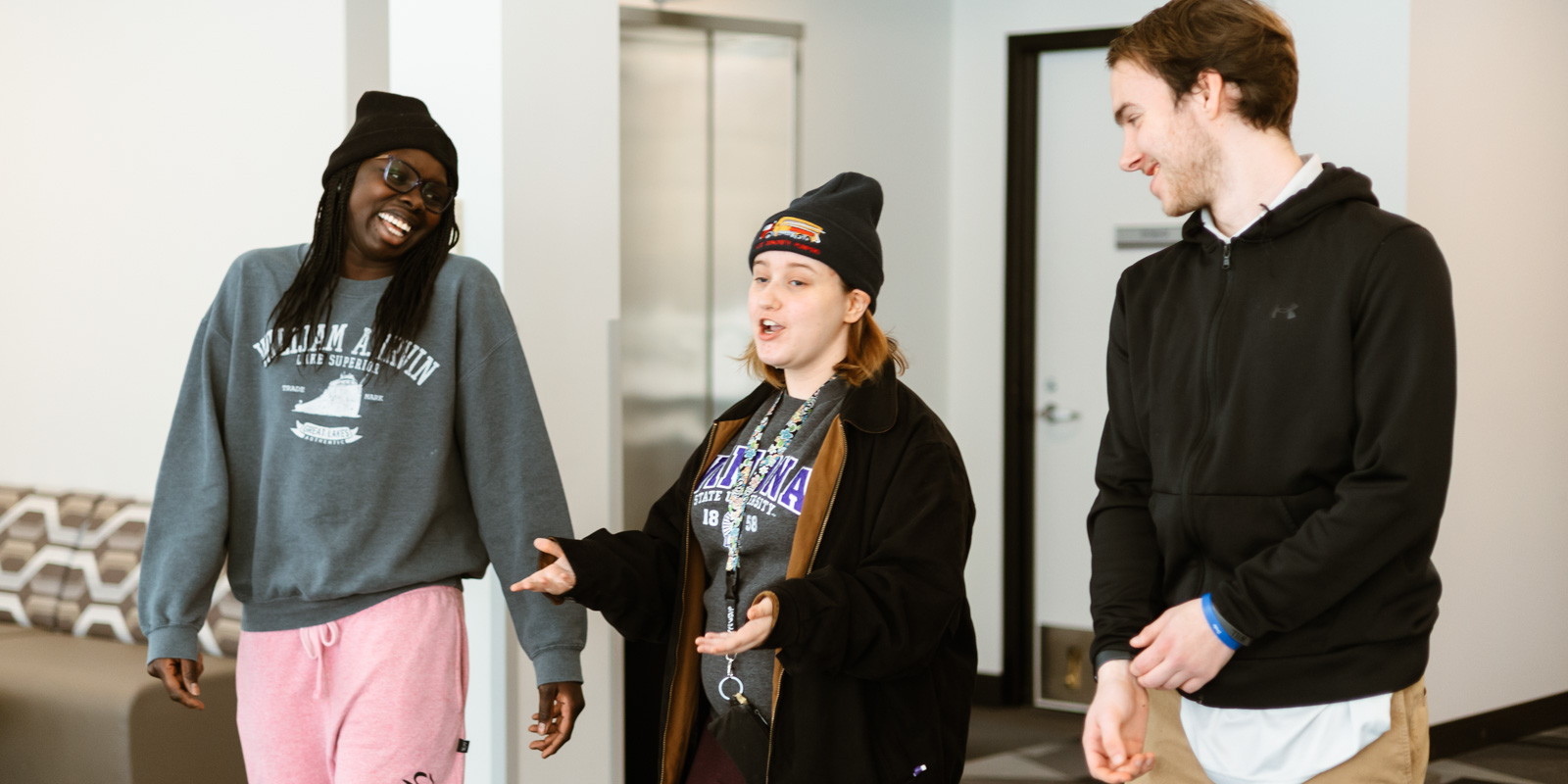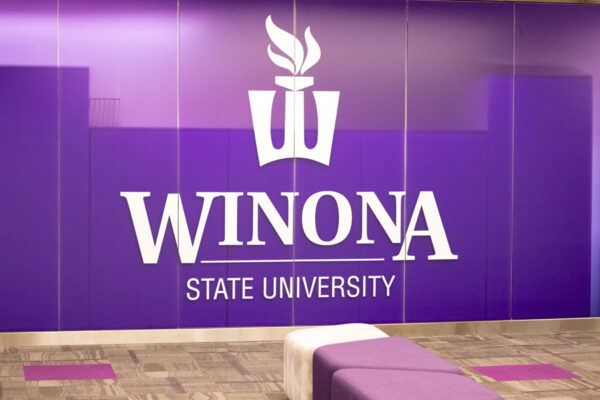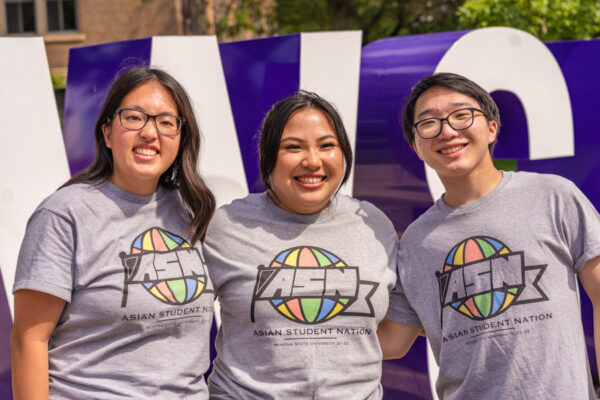
Inclusive Excellence
Inclusive excellence is about educating our community of learners to celebrate diversity at WSU.
We are committed to providing resources and support so that all students, faculty, staff, and community members can be successful in their classrooms, workplaces and on campus.
The Minnesota State Colleges & Universities Division of Equity and Inclusion supports system-wide efforts to promote equity, inclusion, diversity, equal opportunity and affirmative action.
A Guide to Supporting Safe & Inclusive Campus Climates (PDF) is one resource available to help advance inclusive excellence in each institution.
WSU is committed to building an inclusive campus community where all students can reach their academic and career goals.
No matter your race, ethnicity, national origin, or religious beliefs, and whatever your age, gender identity, sexual identity, ability levels or economic background, resources are available to help you find success at WSU.
The Equity & Inclusive Excellence Office has trained staff who provides academic and personal support for all students that identify as diverse.

The KEAP Center
The KEAP Center (Knowledge, Empowerment, Advocacy and Pluralism) works in partnership with the Office of Equity and Inclusive Excellence to create a safe space and an inclusive atmosphere for diverse people, organizations and groups.
This includes people with issues related to:
- Race, Ethnicity and National Origin
- Gender
- Age
- Religion and Beliefs
- Ability Levels
- Economic Status
- Gender and Sexual Identity
We have clubs with focuses from racial equity, cultural expression, and LGBTQ+ rights.
View all Equity, Inclusion, & Diversity Clubs & Organizations
WSU supports an inclusive and safe campus for all employees. Resources are available so faculty and staff can feel welcomed and comfortable in their workplace.
Hate, racism, and bigotry have no place at Winona State.
WSU embraces diversity, and greatly values what people with diverse backgrounds, perspectives and thoughts bring to our institution and to our community. We strive to build an inclusive, equitable and just community for all, and are fully committed to putting in the hard work required to do so.
As we work towards our goal as an institution, we will continue to share the actions we are taking.
We have collected a handful of resources below to assist you. This is not a perfect list and will continue to evolve as our office responds to instances of discrimination.
Steps WSU is Taking to Create Change
WSU has established inclusive excellence as a strategic initiative for the university, and developed a long-range Inclusive Excellence Strategic Plan (PDF). We are continuing to build upon and update this work.
Do Your Part to End Racism
It’s time to start making the change toward anti-racism within yourself, your friends and families, and your community.
These are a few ideas that we’ve gathered from across the internet.
In addition to the resources below, this guide to anti-racism can help white people understand the implications of their own race and become true allies.
These are shows, films and documentaries that discuss Black, Asian and Asian Pacific American experiences in the USA.
Many of these titles are available on online streaming services.
- 13th, 2016 (Netflix) American Son, 2019 (Netflix)
- Better Luck Tomorrow, 2002
- Dear White People, 2017-present (Netflix)
- Minding the Gap, 2018 (Hulu)
- If Beale St Could Talk, 2018 (Hulu)
- King in the Wilderness, 2018 (HBO)
- Spa Night, 2016
- See You Yesterday, 2019 (Netflix)
- Gook, 2017
- The Hate You Give, 2018 (Cinemax)
- When They See Us, 2018 (Netflix)
- American Revolutionary: the Evolution of Grace Lee Boggs, 2013
These are books—both fiction and non-fiction—that explore Black, Asian, and Asian Pacific American experiences in the USA and white privilege.
- How We Fight For Our Lives by Saeed Jones
- Look Both Ways by Jason Reynolds
- How to Write an Autobiographical Novel by Alexander Chee
- So You Want to Talk About Race by Ijeoma Oluo
- Good Talk by Mira Jacob
- Forgotten Country by Catherine Chung
- The Fire This Time by Jesmyn Ward
- Heavy: An American Memoir by Kiese Laymon
- Monstress by Lysley Tenorio
- Eloquent Rage: A Black Feminist Discovers Her Superpower by Brittney Cooper
- Just Mercy by Bryan Stevenson
- Burden of Ashes by Justin Chin
- White Fragility by Robin DiAngelo
- How to Be an Anti-Racist by Ibram X. Kendi
- The Reeducation of Cherry Truong by Aimee Phan
- The New Jim Crow by Michelle Alexander
- Divided Sisters by Midge Wilson and Kathy Russell
- All You Can Ever Know by Nicole Chung
- The Bluest Eye by Toni Morrison
- Their Eyes Were Watching God by Zora Neal Hurston
- Last Boat Out of Shanghai by Helen Zia
- They Can’t Kill Us All by Wesley Lowery
- I Know Why the Caged Bird sings by Maya Angelou
- Not Quite Not White: Losing and Finding Race in America by Sharmila Sen
- Fatal Invention by Dorothy Roberts
- Locking Up Our Own by James Forman
- The Displaced: Refugee Writers on Refugee Lives by Viet Thanh Nguyen
- The Miner’s Canary by Lani Guiner and Gerald Torres
- The Wretched of the Earth by Frantz Fanon
- Pidgin Eye by Joe Balaz
These are organizations working to end police brutality against BIPOC and ensure equal rights for people of color in Minnesota and across the United States.
- Black Visions Collective
- Know Your Rights Camp
- Minnesota Freedom Fund
- Campaign Zero
- Asian American Organizing Project
- Black Lives Matter
- Communities United Against Police Brutality
- NAACP Legal Defense Fund
- American Civil Liberties Union
- Hmong American Farmer’s Association
- Karen Organization of Minnesota
- CAPI
- The Strategist: 154 Ways to Donate in Support of Black Lives and Communities of Color
These are by no means the only actions you could take, and our society won’t change overnight.
But every time someone like you chooses to confront racism and stand up for people of color, that is a step toward justice.
- Connect with the WSU KEAP Center
- Join a protest in your community
- Contact your congress people to ask for support of meaningful initiatives
If you’ve experienced or witnessed some form of discrimination or harassment, report your concern to the University.